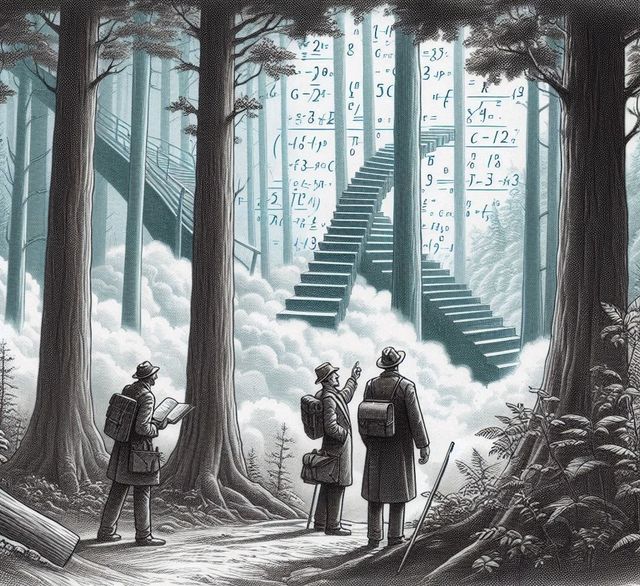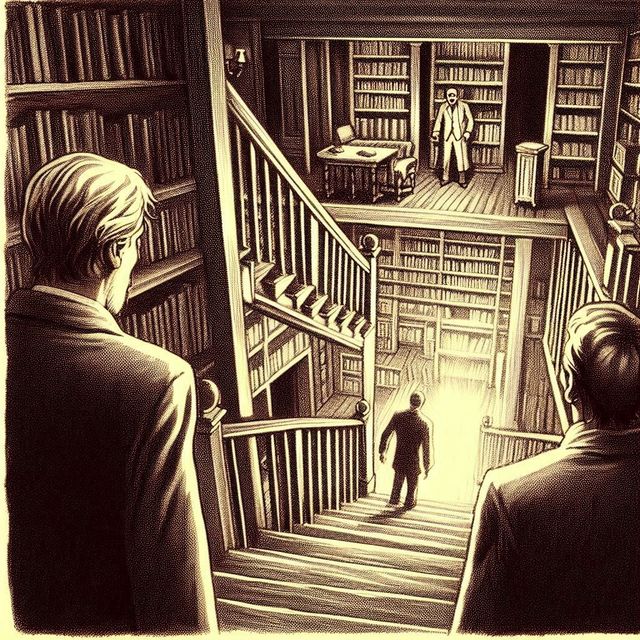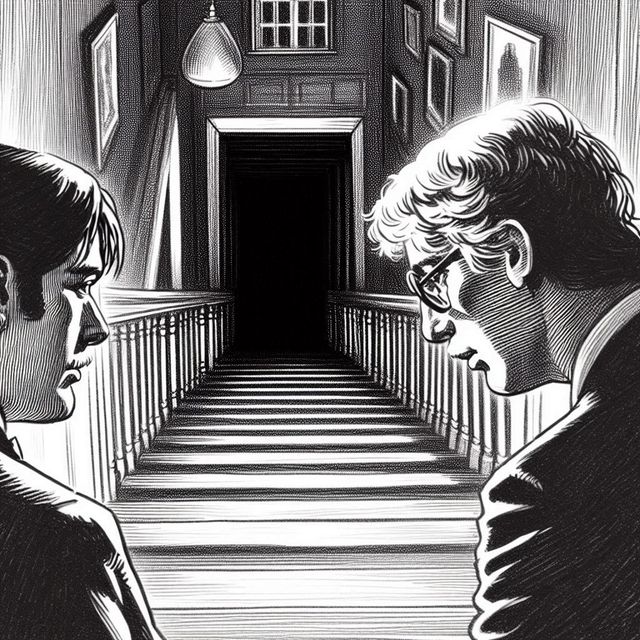-
Vijay Fafat
- Published on
Let this be a cautionary tale for all those who have not focused on polishing their mathematics skills. Someday, you may not be able to save a friend for lack of a suitable algebraic equation… As the protagonist, Phil, says it in the end – I found it quite funny -
“I’m working hard to get back to G.C.E. standard. The correspondence course is very good. Sometimes my postal tutor shows his exasperation with me in red-inked little notes full of sarcasm; but I bear it all. I have just to learn maths and get through into that other world and find my friends. […] As soon as G.C.E. is under my belt I’m going on to degree standard. Only in maths, of course. […] I’m looking forward to the day when I can throw another party, fully provided with another consignment of artillery and safari stores, and show the assembled company what happens when you read a certain set of equations and then descend seven stairs.”
So the story revolves around an accomplished mathematician, Alan Watkins (“He was a professor at the University and I knew that he was regarded as a very-very top man in his field. Maths, however, and 1 parted company as soon as school let out.”). He has managed to find a set of mathematical equations which together act as a talisman, opening up a portal to another world. In his rueful words,
“I put together a series of equations and suddenly found I’d stumbled upon a new technique, that I suppose must have a parallel in—forgive me—the ancient incantations for conjurations. By studying the maths your mind is able to conjure the desired object— […] All I know is that those damned equations are at the root of it all.”
The upshot of it all is that the mathematician is unable to go more than 6 staircase steps – of any staircase - before falling off into a pre-historic jungle (which is what he must have fancied subconsciously, being a military man, when he first held the equations in his own thrall). Everyone else is fine but Alan. Phil verifies this fact through multiple experiments which lead to a hilarious episode of Alan absconding from all his friends simply to avoid all the experimentation. Alan burns down his equations before fleeing, but Phil retrieves a carbon copy. When Alan falls through the spacetime crack of his equations on a staircase in the London Underground, Phil asks some of his mathematically literate friends to study the equations so that they can pass through to the same jungle and rescue Alan. As he describes it with morose humor:
“They nodded, and found pens and pencils and began to copy the weird symbols mathematicians use. I couldn’t make head or tail or it, but I wrote out my own copy along with the others. “ Do you all follow it? ” I asked. Now these men had been staff officers in a pretty high flown armoured division. They were not elementary-school rejects. After a little time of concentration, they all agreed that whilst they didn’t follow the thinking behind the equations, the equation itself was perfectly understandable. I looked at the squiggly marks and the way negatives and positives switched sides, and square-root signs and other ten to the power of umpteen were scattered about, and felt a twinge of misgiving. Then I shrugged that off. I’d read the equation and I was ready to get in after Alan.”
You can see where this is going. The friends manage to get through the spacetime crack while Phil is left “alone, in the entrance to a London Underground station, draped in weapons and ammunition bandoliers, a carving knife at my waist, a floppy safari hat on my head, field glasses around my neck, alone and feeling very stupid and very ineffectual.”
In addition to the breezy and funny writing, I was left with the thought that the story can also be read at a metaphorical level. Mathematics opens up a wonderful world for those who enjoy it; a rabbit-hole down to Alice’s wonderland. As Feynman had remarked in a slightly different context,
“Poets say science takes away from the beauty of the stars - mere globs of gas atoms. I too can see the stars on a desert night, and feel them. But do I see less or more? The vastness of the heavens stretches my imagination - stuck on this carousel my little eye can catch one - million - year - old light. A vast pattern - of which I am a part… What is the pattern, or the meaning, or the why? It does not do harm to the mystery to know a little about it. For far more marvelous is the truth than any artists of the past imagined it. Why do the poets of the present not speak of it? What men are poets who can speak of Jupiter if he were a man, but if he is an immense spinning sphere of methane and ammonia must be silent?”
Mathematics, Physics, the hard sciences – they open up portals to other realms, and those realms of thought have the quality of an untamed jungle, rife for exploration. Perhaps we can generously interpret the story as a metaphor for that?


